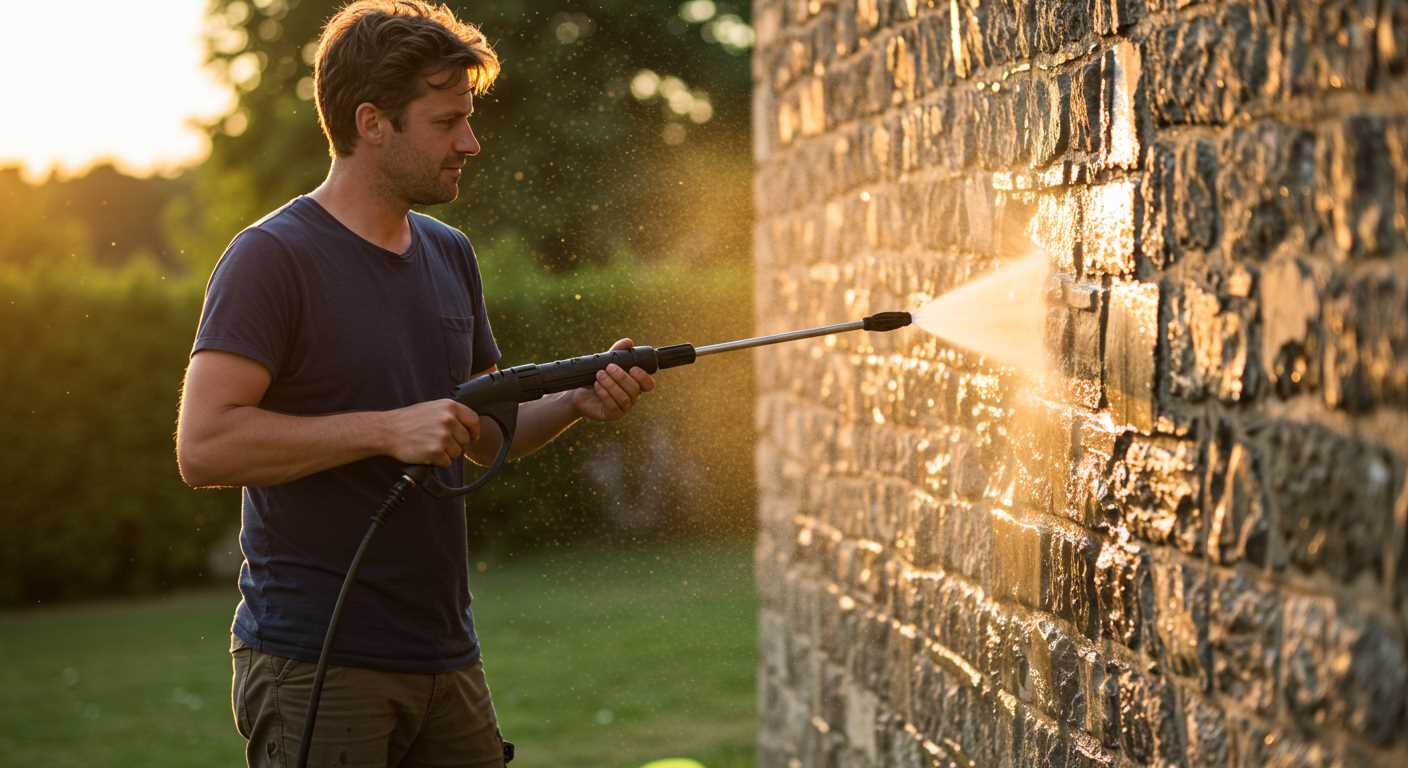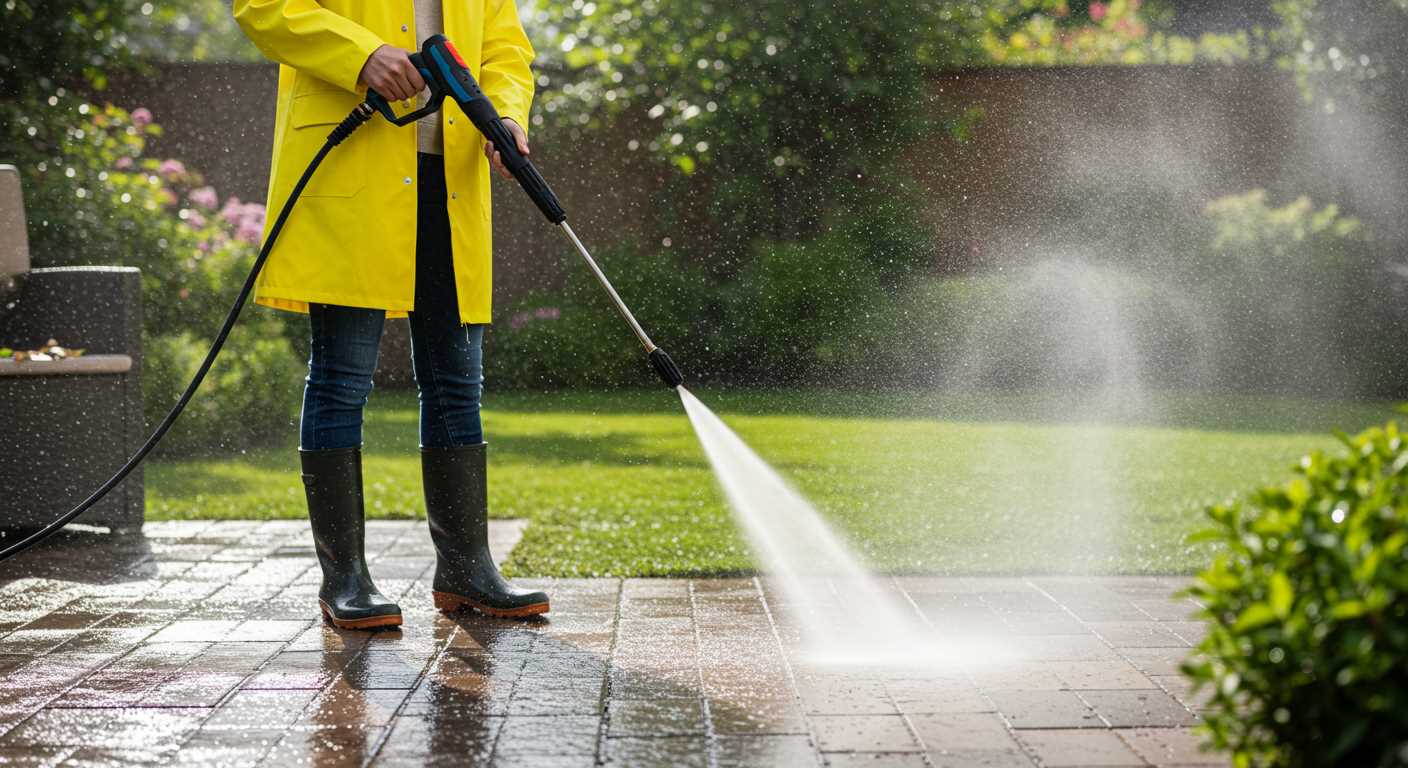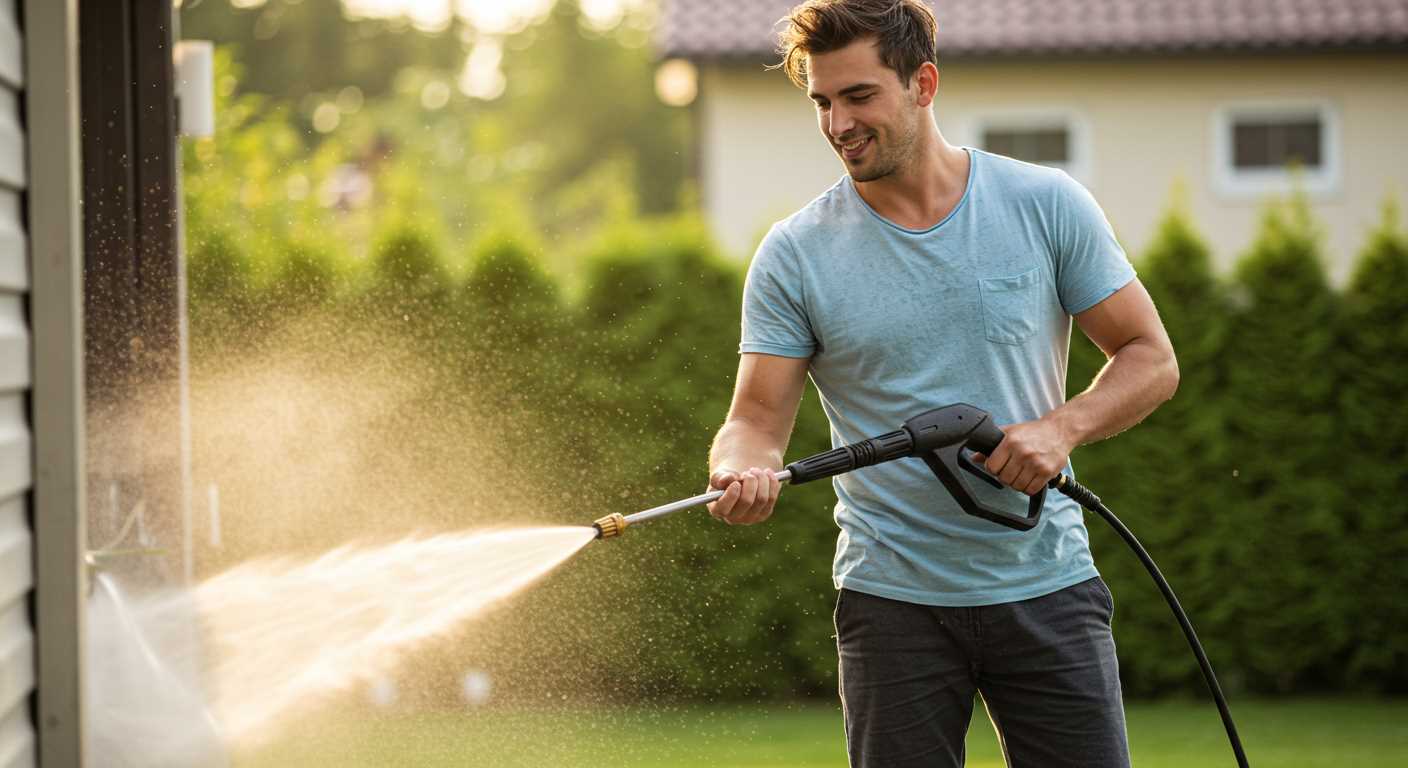




Definitely, there is a risk of electrical hazards when using high-pressure cleaning devices, particularly if they are improperly maintained or used in wet conditions. During my years in the cleaning equipment sector, I witnessed several incidents where failure to adhere to safety guidelines led to unfortunate accidents.
One memorable case involved a colleague who had an unfortunate encounter with an electric unit while attempting to clean a driveway. He didn’t notice a frayed power cord, and when he stepped into a puddle, the result was a painful but non-life-threatening shock. This experience reinforced the importance of regular equipment inspection and proper usage techniques.
To mitigate risks, always check the condition of cables and connections before operating any cleaning appliance. Keeping the unit away from water sources will significantly reduce the chance of an electrical mishap. If working outdoors, using a ground fault circuit interrupter (GFCI) is highly advisable; this device can cut off power instantly in case of a fault, providing an extra layer of protection.
Additionally, wearing rubber-soled shoes while operating the equipment can help insulate against unexpected shocks. Remember, safety is paramount when dealing with high-powered machines, and taking these precautions can make a significant difference in ensuring a safe cleaning experience.
Electrical Risks with High-Pressure Cleaners
While using high-pressure cleaning devices, the potential for electrical hazards exists. My experience in the field has shown that water and electricity can create dangerous situations. I recall a time when I was working on a particularly stubborn outdoor surface. A sudden rain shower caught me off guard, and the ground became slippery. I quickly realised that standing on wet ground while operating equipment could lead to serious electrical risks. Always ensure the area is dry and free from water accumulation before starting your task.
Safety Measures to Implement
To minimise risks, invest in a ground fault circuit interrupter (GFCI). This simple device can be a lifesaver, providing an extra layer of protection by cutting off power if it detects an imbalance in electrical current. Always check the power cord for any signs of wear or damage before use. I’ve seen countless incidents where frayed cords led to shocks. Keeping your workspace organised and ensuring that electrical connections are secure can significantly reduce hazards.
Choosing the Right Equipment
When selecting cleaning tools, consider options that prioritize user safety. For instance, the best cordless garden vacuum and blower can offer a safer alternative for various tasks without the hassle of managing cords. Always prioritise devices with safety certifications to ensure they meet industry standards. My advice is to read reviews and understand the experiences of other users before making a purchase. Your safety is paramount.
Understanding Electrical Hazards in Pressure Washers
Always ensure proper grounding for any cleaning device. Many models require a three-prong plug connected to a grounded outlet. This prevents potential electrical faults that could lead to dangerous situations. I recall testing a unit that lacked proper grounding; it resulted in unusual voltage readings that made me cautious while operating it.
Water and Electricity: A Dangerous Combination
Combining water with electrical equipment can create perilous conditions. During my years in the field, I encountered numerous instances where improper use led to serious accidents. For example, while demonstrating a unit for a customer, I noticed they were washing near a wet area without considering the electrical setup. A simple mistake like that could result in life-threatening scenarios.
Maintaining Equipment for Safety
Regular maintenance is key to preventing electrical issues. Inspect the power cord and connections frequently for damage. I’ve seen cords fray and expose wires, posing significant risks. Always replace damaged components immediately. Additionally, using extension cords that are rated for outdoor use can help mitigate hazards. I’ve had my share of mishaps due to using inappropriate cords, which taught me the importance of adhering to safety standards.
How Water Conducts Electricity: Key Factors
Water can act as a conductor of electricity, and several factors influence its conductivity. Understanding these elements is crucial for anyone working with electrical equipment in wet environments.
Factors Influencing Water Conductivity
- Purity of Water: Pure water, like distilled water, has minimal conductivity. However, the presence of impurities, such as minerals and salts, significantly increases its ability to conduct electricity.
- Temperature: Higher temperatures can enhance conductivity. Warm water allows ions to move more freely, facilitating electrical flow.
- Presence of Impurities: Common contaminants like dirt, metal particulates, and chemicals can elevate the conductivity of water. Even small amounts can have a significant impact.
- pH Level: The acidity or alkalinity of water also affects its conductivity. Acidic or basic solutions typically have higher conductivity compared to neutral water.
Practical Implications
In practical scenarios, be aware of the water source when using electrical devices. For instance, using a hose from a municipal supply may pose different risks than using water from a pond or a reservoir, which may contain various contaminants. Always ensure that equipment is rated for the conditions in which it will be used.
When conducting cleaning tasks involving electricity and water, it’s wise to maintain a safe distance between electrical sources and water. Regular inspections of equipment can help identify potential hazards before they lead to accidents.
Identifying Safety Features in Modern Pressure Washers
Look for models equipped with Ground Fault Circuit Interrupters (GFCIs). These devices cut off electricity when they detect a ground fault, significantly reducing the risk of electrical incidents. I recall testing a unit with a built-in GFCI; it provided peace of mind during use, especially in damp conditions.
Check for automatic shut-off features. Many contemporary designs come with sensors that turn off the motor when the trigger isn’t engaged. This not only conserves energy but also minimises the chances of accidental activation, which I’ve seen lead to hazardous situations in the past.
Examine the construction of the power cord. A heavy-duty, weather-resistant cord with a three-prong plug offers greater protection against wear and tear. I remember a job where a frayed cable caused a minor scare. Since then, I always prioritize robust cords when selecting equipment.
Look for models that have splash guards or sealed components. These features prevent water from entering sensitive electrical areas. During one of my evaluations, I noticed that a sealed design performed exceptionally well in a wet environment, showcasing its effectiveness in protecting electrical parts.
Review the user manual for safety certifications. Units that meet standards such as UL or CE have undergone rigorous testing for electrical safety. I always feel more secure using equipment that has these certifications, as they reflect adherence to strict safety protocols.
Finally, consider the weight and portability. A stable and well-balanced washer is less likely to tip over during operation. I’ve encountered instances where lightweight models were challenging to handle, leading to accidents. Opting for a sturdier design can significantly enhance safety during use.
Common Misconceptions About Pressure Washer Safety
One prevalent myth is that all types of high-pressure cleaning devices are inherently dangerous. This isn’t true. Many models come equipped with safety features that significantly reduce risks. For instance, automatic shut-off valves and ground fault circuit interrupters (GFCIs) are becoming standard in the industry, enhancing user security during operation.
Misperception on Electrical Safety
Another incorrect belief is that the risk of electrical hazards is the same across all brands and models. In my experience, reputable manufacturers comply with strict safety standards, which means their products undergo rigorous testing. When selecting a model, always check for certifications from recognised safety organisations. This gives confidence that the equipment has been designed with user safety in mind.
Water Quality and Conductivity
A common misunderstanding relates to water quality and its role in conducting electricity. Many assume that only tap water can create a risk. However, any water source, including rainwater, can conduct electricity if contaminants are present. In one incident, I witnessed a high-pressure device malfunction due to high mineral content in the water, leading to unexpected electrical issues. Always ensure the water used is clean and within recommended parameters to avoid such situations.
Lastly, the notion that wearing rubber-soled shoes guarantees safety is misleading. While they do provide some insulation, they are not foolproof. It’s essential to be aware of your surroundings and avoid operating in wet conditions or on slippery surfaces. Safety gear, including gloves and goggles, should always be part of your cleaning routine.
Best Practices for Using a Pressure Washer Safely
Always inspect the equipment before use. Check for any visible damage, frayed cords, or loose connections. I recall a time when I overlooked a small crack in the casing of a unit. It led to a minor incident that could have been avoided with a simple inspection.
Use a Ground Fault Circuit Interrupter (GFCI) when operating outdoors. This device cuts off the electrical supply if it detects any imbalance, protecting against potential hazards. I’ve seen many incidents where this simple step prevented serious accidents.
Maintain a safe distance from electrical outlets and power sources while cleaning. High-pressure streams can inadvertently reach these areas, especially if the nozzle is not handled carefully. I once had a close call when water splashed onto an extension cord, leading to a tense moment before I could disconnect it.
Wear appropriate protective gear, including goggles and gloves. During one of my earlier experiences, I neglected this advice and ended up with debris in my eyes. It was a painful reminder of the importance of safety equipment.
Be mindful of your footing and surroundings. Wet surfaces can be slippery, and it’s essential to maintain stability while operating the unit. I’ve slipped before, and it’s not just embarrassing; it can lead to injuries. Always choose your cleaning area wisely.
Store the machine in a dry place, free from moisture. A damp environment can lead to corrosion and electrical issues. I learned this the hard way when a unit I stored outside malfunctioned due to rust.
Follow manufacturer instructions for usage and maintenance. Each model has its specifications and recommended practices. Ignoring these guidelines can lead to not only inefficient cleaning but also potential hazards. I’ve seen units fail simply because users didn’t adhere to the manual.
Finally, never operate the equipment in adverse weather conditions, such as rain or high winds. I once attempted to clean a patio during a light drizzle, and it turned out to be a regrettable decision. The combination of water and electricity is a recipe for disaster.
What to Do If You Experience Electrical Shock
If you find yourself in a situation where electrical current has made contact with your body, it’s crucial to act swiftly and appropriately.
- Disconnect Power: Immediately turn off the source of electricity. If it’s safe to do so, unplug the device or switch off the circuit breaker.
- Do Not Touch the Victim: If someone else is affected, do not touch them while they are still in contact with the electrical source, as this could transfer the current to you.
- Call for Emergency Help: Seek immediate medical assistance. Electrical injuries can have delayed symptoms, so it’s vital to get professional evaluation.
- Assess for Burns: Check for any visible burns or injuries. Document these if possible, as they may be important for medical personnel.
- Monitor Breathing: If the affected person is unconscious or not breathing, be prepared to administer CPR until help arrives.
After the incident, ensure that your equipment is inspected and repaired. If there are issues with the hose or any electrical components, consider a pressure washer hose repair to prevent future hazards.
Always prioritise safety when working with electrical devices. Understanding the risks and knowing how to respond can significantly reduce the impact of such emergencies.
Regular Maintenance to Prevent Electrical Issues
Inspect connections and cords regularly. Frayed wires or loose connections significantly increase risk. I recall a situation where a colleague overlooked a damaged cord, leading to a minor shock incident during a routine clean. Replace any worn components immediately to avoid hazards.
Ensure the machine is always unplugged before performing maintenance. This simple step can prevent accidents. During my years testing various models, I often encountered issues that arose from neglecting this basic precaution.
Keep the washer clean and dry. Water accumulation around electrical components can lead to short circuits. I learned this the hard way when moisture from a rainy day caused unexpected failures. Wipe down the unit after each use, especially around the electrical areas.
Regularly check the GFCI (Ground Fault Circuit Interrupter) functionality. This safety feature is crucial for preventing electrical mishaps. I typically test it once a month. If the GFCI doesn’t trip when it should, it’s time for a replacement.
Use appropriate extension cords rated for outdoor use. A heavy-duty cord can withstand the rigours of outdoor environments better than standard versions. I had an incident with a lightweight cord that melted after prolonged use, creating a significant safety concern.
Follow the manufacturer’s service recommendations. Each unit has specific maintenance guidelines. I’ve seen too many people skip these, only to face costly repairs. Regular servicing can extend the life of the washer and enhance safety.
| Maintenance Task | Frequency | Notes |
|---|---|---|
| Inspect power cords | Monthly | Replace any frayed or damaged cords. |
| Test GFCI | Monthly | Ensure it functions correctly. |
| Clean exterior and components | After each use | Prevent moisture accumulation. |
| Follow service schedule | Annually | Refer to the manufacturer’s guidelines. |
Storing the unit indoors can prevent exposure to the elements. I’ve seen machines corroded beyond repair simply because they were left outside. A little care goes a long way in ensuring safety and longevity.
Choosing the Right Pressure Washer for Your Needs
Opt for an electric model for home use, especially if your tasks involve lighter cleaning jobs like washing vehicles or patios. These units are quieter and generally easier to handle. For larger projects, consider gas-powered alternatives, which deliver higher pressure and flow rates, making them suitable for commercial applications or heavy-duty jobs.
Assessing Power Requirements
Evaluate the pressure output measured in PSI (pounds per square inch) and water flow in GPM (gallons per minute). For residential cleaning, a pressure of 1500-2000 PSI suffices for most tasks. If tackling stubborn stains or larger areas, models offering 3000 PSI or more are ideal. Always match the power level to the cleaning task to avoid damaging surfaces.
Portability and Accessories
Consider weight and design for easy manoeuvrability. If you plan to move the device frequently, lightweight options with wheels will serve you well. Accessory kits can enhance functionality; look for models that include different nozzles for various spray patterns, extension wands for hard-to-reach areas, and soap applicators for effective cleaning. A good set of accessories can make a significant difference in your cleaning efficiency.
FAQ:
Can you get shocked while using a pressure washer?
Yes, it is possible to get shocked while using a pressure washer, especially if the equipment is not properly maintained or if you are using it in wet conditions. Pressure washers operate with high voltage electricity, and if there is a fault in the wiring or if the machine is exposed to water, it can create a risk of electric shock. Always ensure that your pressure washer is in good condition and follow safety guidelines to minimise this risk.
What precautions should I take to avoid electric shock from a pressure washer?
To avoid electric shock when using a pressure washer, consider the following precautions: always check the power cord for any damage before use, ensure the pressure washer is plugged into a properly grounded outlet, avoid using the machine in wet or damp conditions, and wear rubber-soled shoes. Additionally, it’s advisable to use a residual current device (RCD) for added protection against electric shock.
Is it safe to use a pressure washer outdoors?
Using a pressure washer outdoors can be safe if you follow the necessary precautions. Ensure that the machine is plugged into a grounded outlet and that the area is dry. Avoid using the pressure washer during rain or in puddles, as water can increase the risk of electric shock. Always keep the power supply away from water and use extension cords rated for outdoor use if needed.
What should I do if I experience an electric shock from a pressure washer?
If you experience an electric shock while using a pressure washer, immediately turn off the machine and unplug it from the power source, if safe to do so. Seek medical attention even if you feel fine, as electric shock can cause delayed symptoms. Report the incident to the manufacturer if it was due to a fault in the machine. It’s important to have the equipment inspected before using it again.
How can I tell if my pressure washer is safe to use?
To ensure your pressure washer is safe to use, regularly inspect it for any signs of wear or damage, particularly the power cord and connections. Check that all safety features are functioning, such as the trigger lock and pressure relief valve. Before each use, test the machine in a safe environment to ensure it operates correctly without any unusual noises or risks. If you have any doubts, consult a professional for a thorough inspection.






.jpg)


